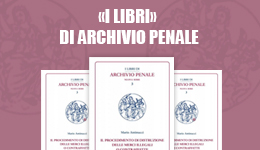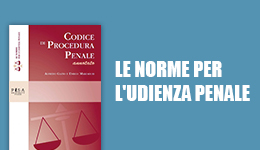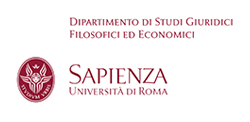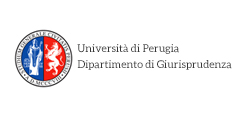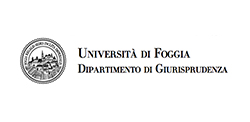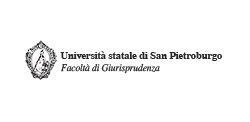Diffamazione e proporzione del trattamento sanzionatorio: il dialogo tra Cassazione e Corte Costituzionale.
Archivio Penale
© dell'autore 2021
Ricevuto: 24 June 2021
| Accettato: 30 June 2021
| Pubblicato: 08 July 2021
L’intero articolo è disponibile
Riassunto
Ennesimo tentativo di instaurare un dialogo con il legislatore, la sospensione disposta dalla, da più parti commentata, ordinanza n. 132 – decorso inutilmente il termine assegnato al Parlamento – è cessata, e il processo costituzionale è ripreso. Il monito della Consulta aveva posto il legislatore dinanzi alla necessità di rivedere l’assetto di disciplina in materia, frutto di un bilanciamento tra i diritti fondamentali in gioco da ripensare alla luce del mutato contesto sociale, culturale e tecnologico. Peraltro, i termini del comunicato rilasciato dall’Ufficio Stampa della Corte Costituzionale hanno ormai tracciato la strada che i Giudici hanno inteso percorrere; strada che tuttavia rischia di non gettare luce sui “casi eccezionali” evocati dalla giurisprudenza europea che, soli, legittimerebbero l’inflizione della pena detentiva. Resta così aperto, tra gli altri, l’interrogativo sul significato del silenzio della Corte costituzionale su tale essenziale profilo.
L’obiettivo del lavoro, pertanto, è analizzare in chiave critica le pronunce della giurisprudenza di legittimità successive alla detta ordinanza che per prime si sono confrontate con il tema della proporzione del trattamento sanzionatorio previsto per fatti diffamazione, per poi svolgere qualche cursoria riflessione sul più recente intervento della Consulta, in attesa, naturalmente, del deposito delle motivazioni.
Defamation and proportionality of the penalty treatment: The dialogue between Cassation and Costitutional Court.
In the umpteenth attempt to establish a dialogue with the Legislature, the suspension ordered by the widely commented Ordinance no. 132 – after the deadline assigned to Parliament had expired to no avail – has ended, and the constitutional process has been resumed. The warning of the Court has placed the Parliament in front of the need to review the structure of the regulation in this matter, i.e. the result of the balance between the fundamental rights at stake that should be rethought in the light of the changed social, cultural and technological context. Moreover, the terms of the press release issued by the press office of the Constitutional Court have now traced the path that the Judges intended to take; a path which, however, risks not shedding light on the “exceptional cases” referred to in European case law which alone would legitimise the imposition of a custodial sentence. This leaves open, among others, the question of the meaning of the Constitutional Court's silence on this essential profile.
The aim of this work, therefore, is to critically analyse the rulings of the jurisprudence of legitimacy subsequent to the aforementioned ordinance, which were the first to deal with the issue of the proportionality of the sanctioning treatment foreseen for acts of defamation, and then to carry out some cursory reflections on the most recent intervention of the Constitutional Court, pending, of course, the filing of the grounds.
Percorso di valutazione
Peer reviewed. Certificazione della qualità


